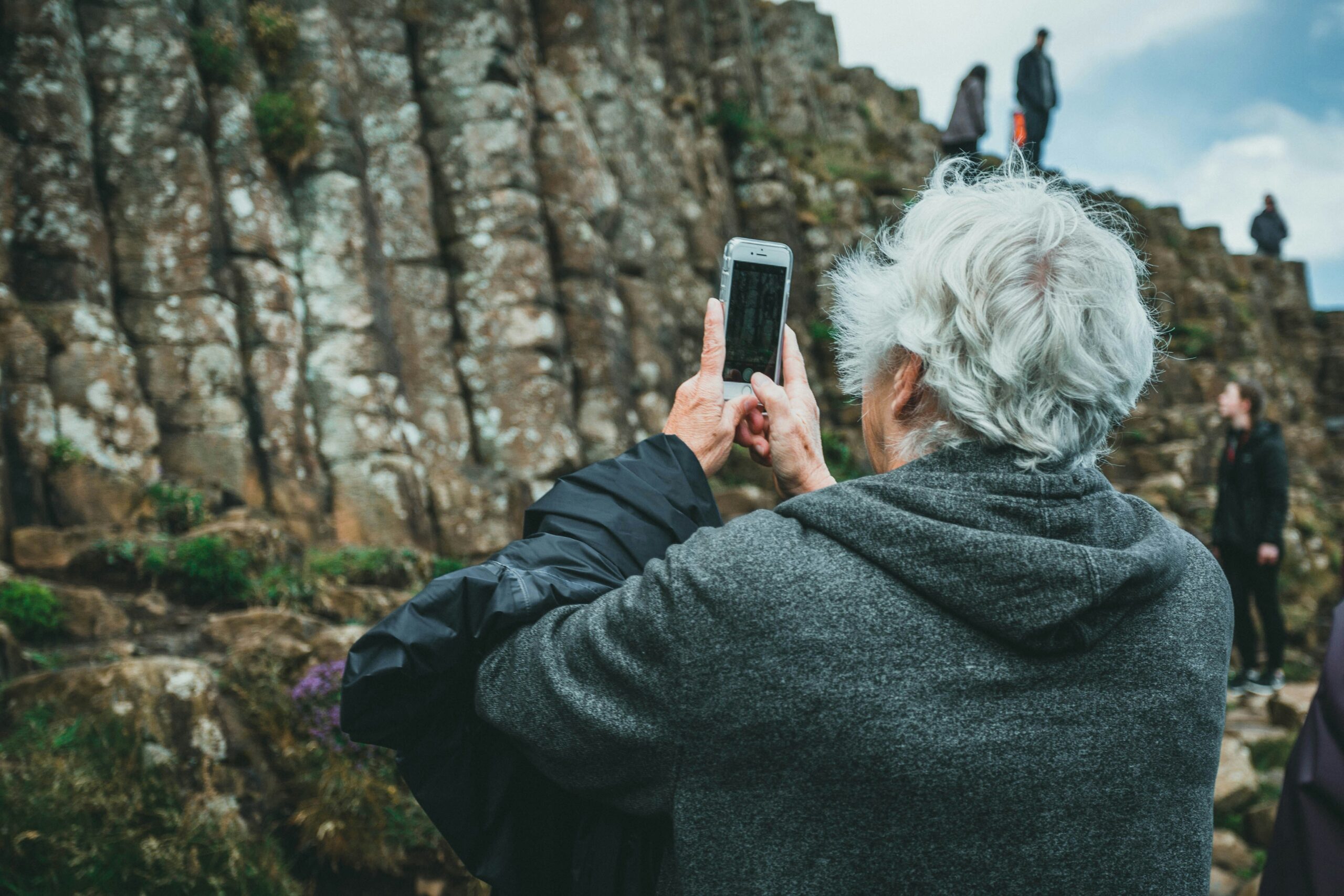Have you ever found yourself in a situation where you’ve captured the perfect shot with your camera and then thought, “How do I transfer these photos to my phone?” This is a common scenario, and thankfully, there are several methods you can use to make that transfer smooth and straightforward. Let’s explore the ways you can get your beautiful images from your camera to your phone quickly.

Understanding Your Camera and Phone Compatibility
Before jumping into the various methods of transfer, it’s crucial to understand your camera’s capabilities. Are you using a DSLR, mirrorless, or compact camera? Many modern cameras come equipped with Wi-Fi, Bluetooth, or NFC functionalities, which allows for easy photo transfer.
Check Your Camera Specs
To get started, check the manual or specifications of your camera. You want to see if it supports wireless transfer or if you’ll need a USB connection. Remember, if your camera doesn’t support wireless functions, don’t worry; you still have options!
Phone Compatibility
Also, consider the operating system of your phone. Whether you’re using Android or iOS, the steps might differ slightly, so it’s good to be aware of this upfront.
Methods to Transfer Photos
Now that you understand your devices, let’s look into several effective methods to transfer your photos from your camera to your phone.
1. Using Wi-Fi Direct
Many modern cameras allow you to set up a Wi-Fi connection directly to your smartphone. This method is often the fastest and most convenient, especially if you’re transferring a lot of pictures.
Steps to Transfer via Wi-Fi Direct
-
Connect Your Devices:
- Turn on your camera and select the Wi-Fi option in the settings.
- Then, on your phone, go to Wi-Fi settings and find your camera’s network.
-
Open the Camera App:
- Some cameras will have a dedicated app you need to download (e.g., Canon Camera Connect or Nikon SnapBridge).
-
Select Photos to Transfer:
- Open the app and browse your camera’s gallery.
- Choose the photos you want to transfer and hit send.
-
Wait for the Transfer:
- Once selected photos are sent, you’ll receive a confirmation on your phone.
This method tends to be very efficient for those who have access to a Wi-Fi-enabled camera.
2. Bluetooth Transfer
If directly connecting via Wi-Fi seems daunting, Bluetooth is another user-friendly option when transferring photos from your camera to your phone.
Steps to Transfer via Bluetooth
-
Pair Your Devices:
- Enable Bluetooth on both your camera and your phone.
- Search for devices and select your camera on your phone to pair.
-
Use Camera App:
- Open your camera’s app and select the images you want to transfer.
-
Send via Bluetooth:
- Use the Bluetooth option from the app to send photos to your smartphone.
-
Receive the Files:
- Keep your phone close and monitor for any notifications to accept incoming files.
Bluetooth can be a little slower than Wi-Fi, but it’s still a reliable method for transferring smaller batches of pictures.
3. Using an App from Your Camera Manufacturer
Many camera manufacturers provide dedicated apps that can bridge the gap between your smartphone and camera.
Steps to Use the Manufacturer’s App
-
Download the App:
- Visit the App Store or Google Play Store and download the app that corresponds with your camera brand.
-
Connect the Camera and Phone:
- Follow app instructions to connect your camera via Wi-Fi or Bluetooth.
-
Transfer Photos:
- Once connected, you can select and transfer photos directly through the app interface.
This method is typically straightforward and made easy by the manufacturer’s support.
4. Direct USB Connection
If your camera doesn’t have Wi-Fi or Bluetooth, using a USB connection is another effective method.
Steps for USB Transfer
-
Connect the Camera to Your Phone:
- You’ll need a USB On-The-Go (OTG) cable that connects your camera’s USB port to your phone.
-
Access Photo Files:
- Once connected, your phone should recognize the camera as a storage device.
-
Transfer Photos:
- You can easily copy photos from the camera’s memory card to your phone’s gallery.
-
Eject:
- Remember to safely eject your camera from your phone once the transfer is complete.
Using USB is a great option when dealing with large photo files, like those taken in RAW format, as the transfer speed is generally faster than wireless methods.
5. Using a Memory Card Reader
If you’re handling an older camera model, a memory card reader can serve as a helpful bridge.
Steps with a Memory Card Reader
-
Remove the Memory Card:
- Safely remove the SD card from your camera.
-
Use a Card Reader:
- Insert the card into the USB card reader.
-
Connect to Your Phone:
- Plug the card reader into your phone using an OTG cable.
-
Transfer Files:
- Open your file manager and access the images stored on the memory card. Then, copy them to your phone.
A card reader can often be a quick and effective solution, especially when you have multiple images to transfer.
6. Cloud Storage
If you prefer to keep your photos in sync across devices, cloud storage may be ideal.
Steps to Use Cloud Storage
-
Upload from Camera to Computer:
- Transfer your photos from your camera to your computer using one of the methods mentioned above.
-
Use Cloud Service:
- Upload the photos to a cloud service like Google Drive, Dropbox, or OneDrive.
-
Access on Your Phone:
- Download the same cloud service app on your phone to access your uploaded photos.
-
Download to Your Phone:
- Choose the images you want from the cloud and download them to your phone.
Cloud storage can also act as a backup solution, keeping your precious memories safe.
7. Email or Messaging Apps
When you just need to send over a couple of images, email or messaging apps can do the trick.
Steps for Sending via Email/Messaging
-
Select Photos:
- From your camera or computer, choose the smaller set of images you want to send.
-
Email/Messaging:
- Compose an email and attach the images, or open a messaging app like WhatsApp, and send them through chat.
-
Access on Your Phone:
- Open the email or messaging app on your phone to download the images.
This method is quite handy if you’re away from home and need to access specific photos quickly.
Additional Tips for Smooth Transfers
No matter which method you choose, ensuring a smooth transfer requires a little preparation. Here are some additional tips that might help along the way:
1. Stay Organized
Create folders on your phone for different batches of photos, especially if you transfer frequently. Being organized makes it easier to find specific memories!
2. Ensure Sufficient Space
Before transferring, check to see that your phone has enough storage for the new images. Nothing is worse than an interrupted transfer due to insufficient space!
3. Charge Devices
Be sure both your camera and phone are sufficiently charged before attempting a transfer, especially when using Wi-Fi or Bluetooth, as these processes may take some time.
Troubleshooting Common Issues
Sometimes, you might run into a few hiccups during the transfer process. Here are a few common challenges and their solutions:
1. Connection Issues
If your devices aren’t connecting, try restarting both your camera and phone. This can often solve temporary glitches.
2. Transfer Errors
If the transfer fails, check whether the applications are up to date and whether you have the latest firmware installed for your camera.
3. Slow Transfer Speed
If transfers are taking longer than expected, consider transferring fewer files at once. Large files can slow down the process, so break them into smaller batches.
Conclusion
Now that you know how to transfer photos from your camera to your phone, you can choose the method that best suits your needs. Whether you prefer the convenience of wireless connections or you’re comfortable using USB cables, you have the tools necessary to make it happen. Remember to keep your devices charged, organized, and ready for the next great photo opportunity. Happy transferring!
